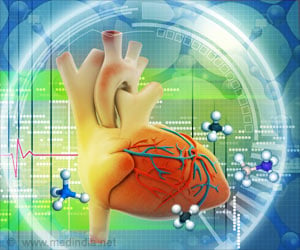Senescent cells produce factors that damage adjacent cells and cause chronic inflammation, which is closely associated with frailty and age-related diseases.

‘Senescent cells that accumulate with aging are largely bad, do bad things to organs and tissues, and therefore shorten our life.’





"Cellular senescence is a biological mechanism that functions as an ‘emergency brake' used by damaged cells to stop dividing," says Jan van Deursen, Ph.D., Chair of Biochemistry and Molecular biology at Mayo Clinic, and senior author of the paper. "While halting cell division of these cells is important for cancer prevention, it has been theorized that once the ‘emergency brake' has been pulled, these cells are no longer necessary." The immune system sweeps out the senescent cells on a regular basis, but over time becomes less effective. Senescent cells produce factors that damage adjacent cells and cause chronic inflammation, which is closely associated with frailty and age-related diseases.
Mayo Clinic researchers used a transgene that allowed for the drug-induced elimination of senescent cells from normal mice. Upon administration of a compound called AP20187, removal of senescent cells delayed the formation of tumors and reduced age-related deterioration of several organs. Median lifespan of treated mice was extended by 17 to 35 percent. They also demonstrated a healthier appearance and a reduced amount of inflammation in fat, muscle and kidney tissue.
"Senescent cells that accumulate with aging are largely bad, do bad things to your organs and tissues, and therefore shorten your life but also the healthy phase of your life," says Dr. van Deursen. "And since you can eliminate the cells without negative side effects, it seems like therapies that will mimic our findings - or our genetic model that we used to eliminate the cells - like drugs or other compounds that can eliminate senescent cells would be useful for therapies against age-related disabilities or diseases or conditions."
Darren Baker, Ph.D., a molecular biologist at Mayo Clinic, and first author on the study is also optimistic about the potential implications of the study for humans.
Advertisement
The research was supported by the National Institutes of Health, the Paul F. Glenn Foundation, the Ellison Medical Foundation, the Noaber Foundation and the Mayo Clinic Robert and Arlene Kogod Center on Aging.
Advertisement









